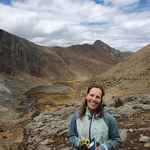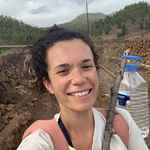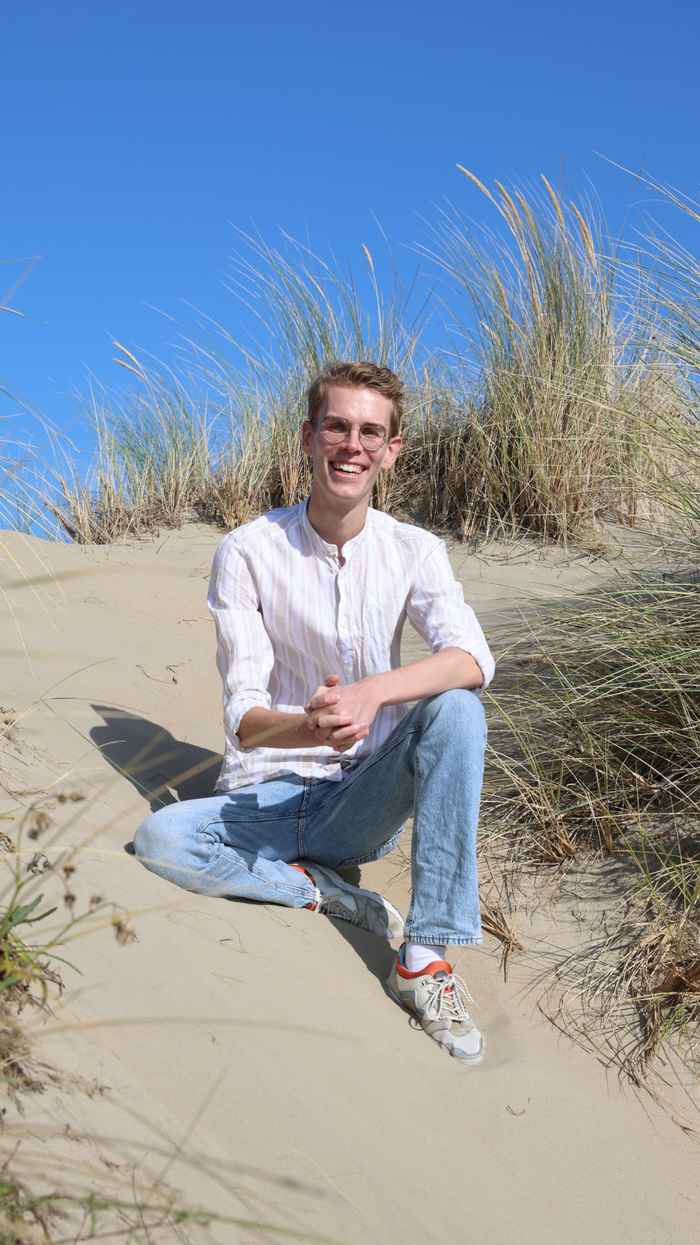Career Prospects
Our UvA Earth Sciences alumnus work as:
- Advisor on Circular Economy at Systemiq
- Startup in circular nutrients and consultancy
- Water quality and ecohydrology advisor at TAUW bv
- Sustainability consultant at Mérieux NutriSciences | Blonk
- Data trainee at the Province of North Holland
- GIS consultant GEODAN
- Professor Geology University of New York
- Centraal Bureau Statistiek Advisor
- PhD researcher nitrogen at the University of Amsterdam

I focus on crisis management, preparing for scenarios such as heavy rainfall, water pollution, and potential electricity outages. My background in Earth Sciences is invaluable.Paulien Deken, Trainee at Hoogheemraadschap Hollands Noorderkwartier Read more about Paulien's story

The highlight for me was getting to know my classmates. Even though the research was hard work, we had a blast exploring the island together.Itxaso Garay Morrissey, alumnus Read more about Itxaso's story
All former students of the Faculty of Science are alumni. Where do our alumnus end up after graduating? And how do they put their academic knowledge into practice? Marleen shares more about her career path.
Meet our students
Would you like to hear from one of our Master's students what it's really like to study at the UvA? Are you curious about the study programmes, student facilities, lecturers and research projects? You can either ask your questions by email, or make an appointment for a 'Meet the Master' day.

During my bachelor's in Future Planet Studies, I gained extensive knowledge in Earth Sciences. I especially enjoyed fieldwork and working with GIS and satellite data. I wanted to deepen my knowledge and skills in these areas and knew that IBED had a strong focus on GIS and remote sensing. Additionally, innovative research topics such as rewilding were also being explored there.
Compared to Earth Sciences programmes at other universities, the UvA offers more opportunities for applied research that connects directly to societal issues. At other universities, the focus is sometimes more theoretical, though theoretical research is certainly also possible at the UvA.
- How much freedom did you have in choosing courses or projects? Are there opportunities to tailor the programme to your interests?
- How practical or theoretical is the programme?
- How would you describe the atmosphere within the programme? Did you have much contact with fellow students and lecturers? Are there many group assignments, or is the focus more on individual work?
- What kind of dissertation or graduation projects are possible? Can you provide an example of your own project?
- Was it easy for you to find a job after your master’s? How did you find your current position?
- What advice would you give to someone considering this master’s programme?

I chose the Environmental Management track at the UvA because of the wide range of options available. At the time, I wasn’t entirely sure which direction I wanted to take, and this track offered plenty of flexibility and opportunities to explore what suited me best. I was able to do a lot of fieldwork abroad, take courses in GIS, and further develop my laboratory skills. Additionally, the programme included space for an internship, which gave me valuable insight into my career possibilities after graduation.
- Why did you choose the UvA?
- How much freedom did you have in choosing courses or projects? Are there opportunities to tailor the programme to your interests?
- How practical or theoretical is the programme?
- How would you describe the atmosphere within the programme? Did you have a lot of interaction with fellow students and lecturers? Are there many group assignments, or is the focus more on individual work?
- What types of thesis or graduation projects are possible? Can you provide an example of your own project?
- Was it easy for you to find a job after your master’s? How did you end up in your current role?
- What advice would you give to someone considering this master’s programme?